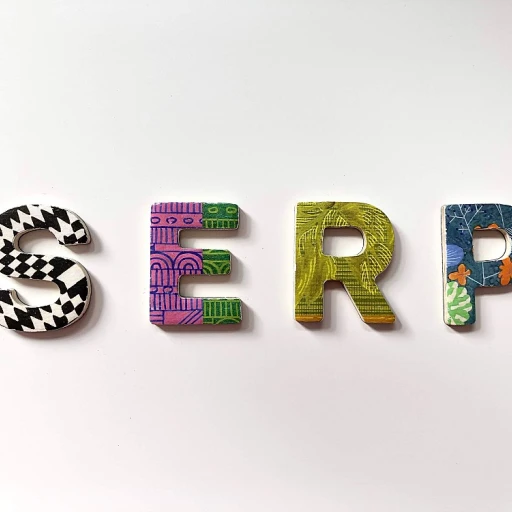The Science of Persuasion: Influencers' Psychological Toolbox
Deciphering the Foundations of Influence and Persuasion
In the digital age, influencers have ascended to formidable heights, largely due to their mastery over the science of persuasion. At the core of this art lies a deep understanding of the psychological triggers that sway human behavior. Leading studies, such as Robert Cialdini's pioneering work, identify key principles including reciprocity, commitment and consistency, social proof, authority, liking, and scarcity. As a digital influencer, tapping into these principles can significantly amplify your ability to shape audience attitudes and actions.
Utilizing Cognitive Biases to Shape Perceptions
Humans are subject to an array of cognitive biases that influencers can strategically leverage. For instance, the halo effect allows a single positive impression to color overall perception. When influencers showcase their expertise or share high-quality content, they create a halo of credibility that enhances follower engagement. Similarly, the bandwagon effect propels individuals to align with popular trends or opinions, a psychological lever that influencers press by highlighting their wide-reaching impact and endorsement by other notable figures or brands.
The Pull of Reciprocity and Social Proof in Online Interaction
The reciprocity norm suggests we are wired to return favors and engage with those who provide us value. When influencers offer actionable advice, exclusive content or heartfelt engagement, they seed a sense of obligation among followers. This phenomenon, partnered with social proof, where individuals mirror the actions of others, sets the stage for compelling audience participation. Influencers who skillfully showcase their collaborative ventures and user-generated content create persuasive narratives that others naturally wish to be a part of.
Strategic Storytelling to Captivate and Convince
As influencers delve into the heart of storytelling—a theme further explored in the art of crafting compelling narratives—they're able to weave psychological techniques with relatable tales. This fusion not only entertains but embeds persuasive messages within memorable stories. Thus, the influencer's message becomes intricately linked with the audience's emotional experiences, laying the groundwork for deep-rooted influence that resonates beyond the digital space.
Laying the Groundwork for Trust and Emotional Connection
The pillars of trust and emotional intelligence, crucial elements for resonating with followers, stand as undeniable assets in the persuasive toolkit. By displaying consistency in their message and personality, influencers construct a reliable façade that garners audience loyalty. Furthermore, by demonstrating emotional intelligence—an influencer's capacity to empathize and engage with their audience on an emotional level—deeper bonds are formed. These bonds foster a conducive environment for ethical persuasion, where influencers hold the power to shape perspectives while maintaining their integrity and the trust of their audience.
The Art of Crafting Compelling Stories
The Mastery of Storytelling in Influencer Marketing
The artistry of storytelling can be a powerful catalyst for engagement and influence. Top-tier influencers understand that sharing stories that are relatable, captivating, and deeply personal can create a profound connection with their audience. According to a study published in the Journal of Brand Management, effective storytelling increases audience empathy, reinforcing the bond between influencer and follower.
- Utilize narratives that resonate with your audience’s values and experiences.
- Incorporate behind-the-scenes glimpses and personal anecdotes to enhance relatability.
- Invoke emotions through stories of triumph, struggle, or even everyday occurrences.
Cultivating a Signature Storytelling Style
Developing a unique storytelling flair can set an influencer apart in the digital milieu. A signature style - whether it's humor, inspiration, or raw honesty - becomes a distinct trademark that followers come to expect and appreciate. Influencers like Casey Neistat have amassed millions of followers by combining unique personal perspectives with consistent narrative elements.
- Fine-tune your delivery by reflecting your personality through your content.
- Experiment with different mediums and formats, such as vlogs, photos, and caption storytelling.
- Measure audience response to refine your storytelling approach.
Leveraging Narrative Hooks for Audience Engagement
Just as a novel or film uses a hook to keep audiences invested, so too can influencers. Captivating openings, suspenseful story arcs, and conclusive cliffhangers can significantly impact followers' engagement rates. A BuzzSumo analysis showed that headlines with strong emotional hooks have a higher likelihood of going viral.
- Start stories with intriguing questions or surprising facts to pique interest.
- Introduce challenges or conflicts early to draw followers into the narrative journey.
- Use open loops - teasers about upcoming content - to encourage continued engagement.
Integrating Multimedia to Enhance Storytelling
In the vibrant landscape of social media, the integration of multimedia elements can augment the storytelling experience. Instagram influencer Murad Osmann leverages visually stunning images paired with short stories to transport his audience around the world. Including videos, images, and audio can amplify the sensory experience of a story and foster a more immersive connection.
- Incorporate imagery that complements and elevates your narrative.
- Create a varied content strategy that includes videos, live Q&A sessions, and podcasts.
- Ensure that all multimedia elements adhere to high-quality standards to maintain professional credibility.
Building Trust Through Consistency and Authenticity
Creating a Bond with Your Audience
Trust is a fundamental currency in the digital realm, especially for influencers seeking to leave a lasting impact on their audience. Building trust isn't an overnight feat; it requires a persistent display of reliability and genuineness. Research has shown that influencers who exhibit consistent messaging and behavior cultivate a more engaged and loyal following. According to the Journal of Marketing, consistency enhances brand sincerity and fosters trust with consumers.
- Consistent Content Calendar: Sticking to a regular posting schedule keeps followers anticipating your next share, which can be a driving force in cementing a trusted online presence.
- Authentic Interactions: Genuine engagement with your audience, such as replying to comments and messages, shows that you value their input, further strengthening the bonds of trust.
Navigating the Path to Authenticity
Authenticity is more than a buzzword in the influencer industry; it's the bedrock of effective persuasion. An article in the Frontiers in Psychology indicates that when influencers' values align with their content, the perceived authenticity results in greater influence and audience satisfaction. Here are a few strategies for ensuring authenticity:
- Real Life Stories: Sharing personal experiences that resonate with your audience not only makes your content relatable but also amplifies its credibility.
- Aligning Values with Content: Make your ideals clear and ensure that your content consistently reflects those principles.
Leveraging Emotional Intelligence
Emotional intelligence — the capacity to be aware of, control, and express one's emotions, and handle interpersonal relationships judiciously and empathetically — is a powerful tool for influencers. Integrating emotional intelligence into your strategy allows for deeper connections with your audience, enabling you to resonate with their feelings and desires. According to a Harvard Business Review article, emotionally intelligent leaders are more effective because they create an atmosphere of trust and understanding.
Incorporating emotional intelligence into your online presence can be achieved by:
- Active Listening: Show that you're not only interested in expressing your own thoughts but are also keen on understanding your followers' perspectives.
- Empathic Engagement: Approach each interaction with empathy, acknowledging and responding to the emotions behind the words of your audience.
Emotional Intelligence: The Key to Resonating with Followers
Decoding Emotional Intelligence for Greater Engagement
Emotional Intelligence (EI) is a crucial component in the toolkit of a successful influencer. This multidimensional skill allows influencers to connect deeply with their audience, creating content that resonates and engages. Evidence of Emotional Intelligence in action is clear when influencers demonstrate self-awareness and empathy, aligning their messaging with the emotional pulse of their community. According to Harvard Business Review, those with high EI are more adept at handling the social complexities of the workplace, including leadership positions—a directly relatable concept within the realm of social media influence.
- Self-Awareness: By being aware of their own emotions, influencers can manage their deliverance in a way that is sincere and relatable.
- Empathy: Understanding and sharing the feelings of others helps in crafting content that speaks directly to the hearts and minds of followers.
A study by Nielsen reports that emotionally compelling content can achieve up to a 50% increase in memory retention, driving home the importance of emotional engagement for influencers seeking to make a lasting impact.
Mastering the Emotional Narrative
The art of storytelling intertwines with Emotional Intelligence to produce narratives that captivate and influence. Affect-laden stories are not just remembered; they're felt. Influencers employing a strong narrative see a greater emotional connection, which in turn can lead to increased brand loyalty and follower action. As discussed in prior sections on the power of storytelling, weaving emotional threads into the fabric of each tale amplifies the message and encourages followers to become part of the story themselves.
Cultivating Emotional Connections with Authenticity
Trust is the cornerstone of any relationship, and the bond between an influencer and their audience is no exception. Building trust through consistent, authentic interactions is paramount, as highlighted in the previous section on authenticity. Influencers who show genuine care and concern for their followers' emotions foster a sense of community and belonging. Sprout Social's research suggests that 86% of consumers believe transparency from businesses is more important than ever, therefore, transparency in communication and conveying true emotions can significantly bolster an influencer's trustworthy reputation.
Navigating Ethical Boundaries in Emotional Influence
While the impact of Emotional Intelligence is profound, influencers must tread carefully to ensure their influence does not cross into manipulation. As mentioned in the discussion on ethical persuasion, navigating the thin line between impact and integrity is a complex but necessary endeavor. Marketers and influencers alike should aim for genuine connection rather than exploitation of their audience's emotions. Responsible influencers recognize that while emotions can serve as a strong motivator for change, they must be employed cautiously and responsibly.
Statistics from the International Journal of Advertising suggest that ethically sound practices not only maintain consumer trust but can also lead to better engagement and sales metrics over time. Therefore, influencers seeking long-term success should prioritize the ethical use of Emotional Intelligence in their strategy.
Ethical Persuasion: Balancing Influence and Integrity
Ethical Boundaries in Influence
As influencers weave the psychological tactics of persuasion into their content strategy, it is crucial to maintain a delicate balance between compelling influence and moral integrity. The burgeoning field of social media influence has given rise to questions about ethical practices. Audiences today are more savvy and skeptical; they have an acute radar for manipulation and can quickly lose trust in influencers who appear disingenuous or overly commercial.
One study by the Influencer Marketing Hub reports that authenticity is what makes an influencer more relatable and trustable in the eyes of their audience. When influencers stay true to their values, and transparently disclose partnerships, they create a trust bond that enhances the effectiveness of their persuasion without compromising ethics.
Cultivating a Responsible Platform
In the landscape of social media, where the potential for audience impact is colossal, influencers have a responsibility to use their platforms for positive change. This entails not just pitching products but advocating for causes, spreading awareness, and contributing to discussions with insightful and factual information. Ethical persuasion in this context means leveraging influence to foster community engagement and social responsibility—where the influencer is a catalyst for conversation and action, rather than just a vector for advertising.
According to Forbes, influencers who engage with social issues and stand for something bigger than their brand not only deepen their relationship with followers but also attract a more loyal audience base. The persuasion here is subtle and rooted in the influencers' commitment to their cause, which underscores the profound impact influencers can have when they align their persuasive strategies with ethical standards.
Creating Value Beyond the Sell
In the realm of ethical persuasion, the aim is to go beyond the art of selling. The approach is to provide value in a way that enriches the followers' experience. This might mean offering high-quality content, educational information, or entertainment that hues closely to the influencer's personal brand and expertise. By focusing on adding value, influencers earn the respect and attention of their audience, and the 'sell' becomes an organic part of the value proposition. Top-tier influencers understand that the persuasive power of their content is amplified by the value it delivers. A Nielsen report corroborates this by indicating that content that is high in utility and relevance can boost message persuasiveness substantially.
Ultimately, ethical persuasion is not merely a strategy but a way of engaging with the world that respects the intelligence and autonomy of the audience. For influencers who are eager to make a lasting impression, it's about fostering connections that are built on the bedrock of sincerity, value, and integrity.








